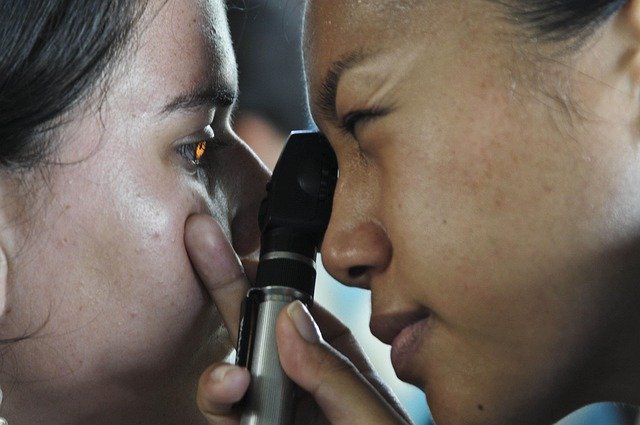Understanding Plaque Psoriasis Treatment: Effective Options for 2025
Plaque psoriasis is a chronic autoimmune condition that affects millions of people worldwide, causing red, scaly patches on the skin. As we look ahead to 2025, advancements in treatment options offer hope for those seeking relief from this challenging condition. This article explores the latest and most effective plaque psoriasis treatments, providing insights from specialists and practical tips for managing symptoms.

What are the most effective plaque psoriasis treatment options for 2025?
As we approach 2025, several treatment options have shown promising results in managing plaque psoriasis. Topical treatments remain a cornerstone of psoriasis management, with corticosteroids and vitamin D analogs being widely prescribed. These medications help reduce inflammation and slow skin cell growth, providing relief from symptoms.
Systemic medications, such as methotrexate and cyclosporine, continue to be effective for moderate to severe cases. However, biologic drugs have revolutionized psoriasis treatment in recent years. These targeted therapies, including TNF-alpha inhibitors and IL-17 inhibitors, work by suppressing specific components of the immune system responsible for psoriasis flare-ups.
Phototherapy, using controlled exposure to UVB light, remains an effective option for many patients. This treatment can be administered in a clinical setting or through at-home light therapy devices, offering flexibility for patients.
Which top-rated plaque psoriasis creams are recommended for 2025?
As we look towards 2025, several topical treatments have gained recognition for their effectiveness in managing plaque psoriasis symptoms. Clobetasol propionate, a potent corticosteroid, continues to be highly rated for its ability to reduce inflammation and itching. Calcipotriene, a vitamin D analog, is often prescribed in combination with corticosteroids for enhanced efficacy.
Tazarotene, a retinoid cream, has shown promising results in reducing plaque thickness and scaling. For those seeking non-steroidal options, tacrolimus and pimecrolimus, known as calcineurin inhibitors, are effective in treating sensitive areas like the face and skin folds.
It’s important to note that the effectiveness of these creams can vary from person to person, and a dermatologist should be consulted to determine the best treatment plan.
What are some helpful skin care tips for managing psoriasis?
Managing psoriasis goes beyond medication, and proper skin care plays a crucial role in controlling symptoms. Keeping the skin moisturized is essential, as dry skin can exacerbate psoriasis symptoms. Look for fragrance-free, hypoallergenic moisturizers and apply them regularly, especially after bathing.
Gentle cleansing is crucial to avoid irritating the skin. Use lukewarm water and mild, soap-free cleansers. Avoid hot showers or baths, as they can strip the skin of its natural oils and worsen dryness.
Sun exposure, in moderation, can be beneficial for many people with psoriasis. However, it’s important to protect the skin from sunburn, which can trigger flare-ups. Use a broad-spectrum sunscreen with at least SPF 30 on areas not affected by psoriasis.
Stress management techniques, such as meditation or yoga, can also help, as stress is a known trigger for psoriasis flares. Additionally, maintaining a healthy diet and avoiding triggers like alcohol and tobacco can contribute to better symptom management.
Are there affordable treatments available for psoriasis relief?
While some psoriasis treatments can be expensive, there are affordable options available for managing symptoms. Over-the-counter treatments, such as coal tar shampoos and salicylic acid products, can be effective for mild cases and are generally budget-friendly.
Generic versions of prescription medications often offer significant cost savings compared to brand-name drugs. For example, generic clobetasol propionate is typically more affordable than its brand-name counterparts.
| Treatment Option | Estimated Cost Range | Notes |
|---|---|---|
| Coal Tar Products | $10 - $30 | OTC options available |
| Salicylic Acid Products | $5 - $20 | OTC options available |
| Generic Corticosteroid Creams | $10 - $50 | Prescription required |
| Phototherapy (at-home devices) | $200 - $500 | One-time purchase |
| Generic Systemic Medications | $50 - $200 per month | Prescription required |
Prices, rates, or cost estimates mentioned in this article are based on the latest available information but may change over time. Independent research is advised before making financial decisions.
For those requiring more intensive treatments, patient assistance programs offered by pharmaceutical companies can help reduce the cost of biologic medications. Additionally, participating in clinical trials can provide access to new treatments at no cost, though this option requires careful consideration and discussion with a healthcare provider.
What insights do Fairview psoriasis specialists offer?
Fairview psoriasis specialists emphasize the importance of a personalized approach to treatment. They note that what works for one patient may not be effective for another, highlighting the need for tailored treatment plans.
These experts stress the significance of early intervention and consistent treatment. They advise patients to work closely with their dermatologists to find the most effective combination of treatments and to adjust the regimen as needed.
Fairview specialists also highlight the potential benefits of combination therapy, where different treatment modalities are used together to achieve better results. For instance, combining topical treatments with phototherapy or systemic medications can often lead to improved outcomes.
In conclusion, the landscape of plaque psoriasis treatment continues to evolve, offering hope for better management and improved quality of life for those affected by this condition. From advanced biologic therapies to time-tested topical treatments and holistic skin care approaches, a range of options is available to suit different needs and budgets. As we approach 2025, ongoing research and development in this field promise even more effective and targeted treatments for plaque psoriasis.
This article is for informational purposes only and should not be considered medical advice. Please consult a qualified healthcare professional for personalized guidance and treatment.




